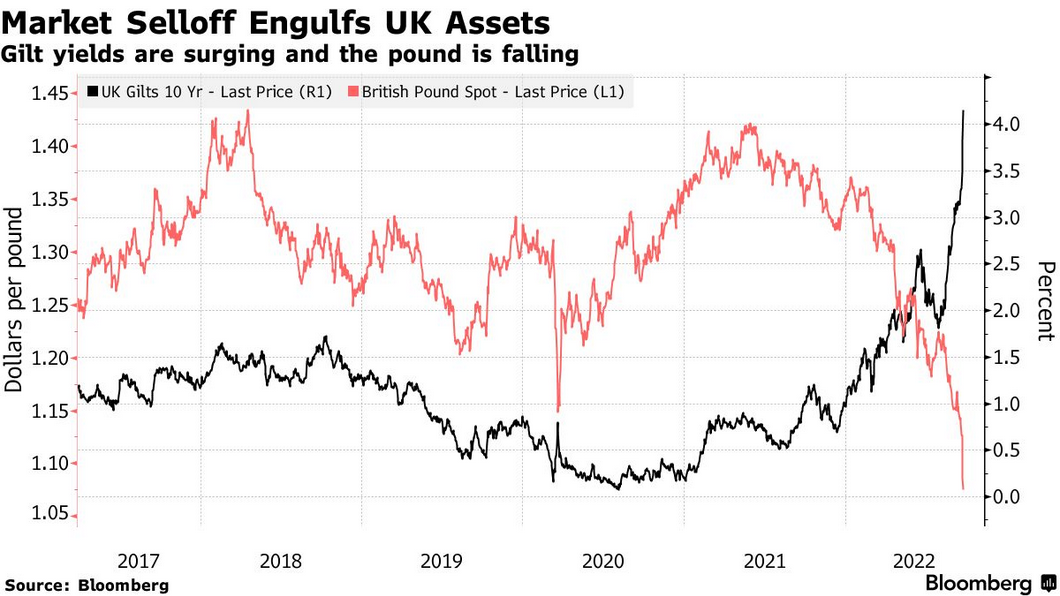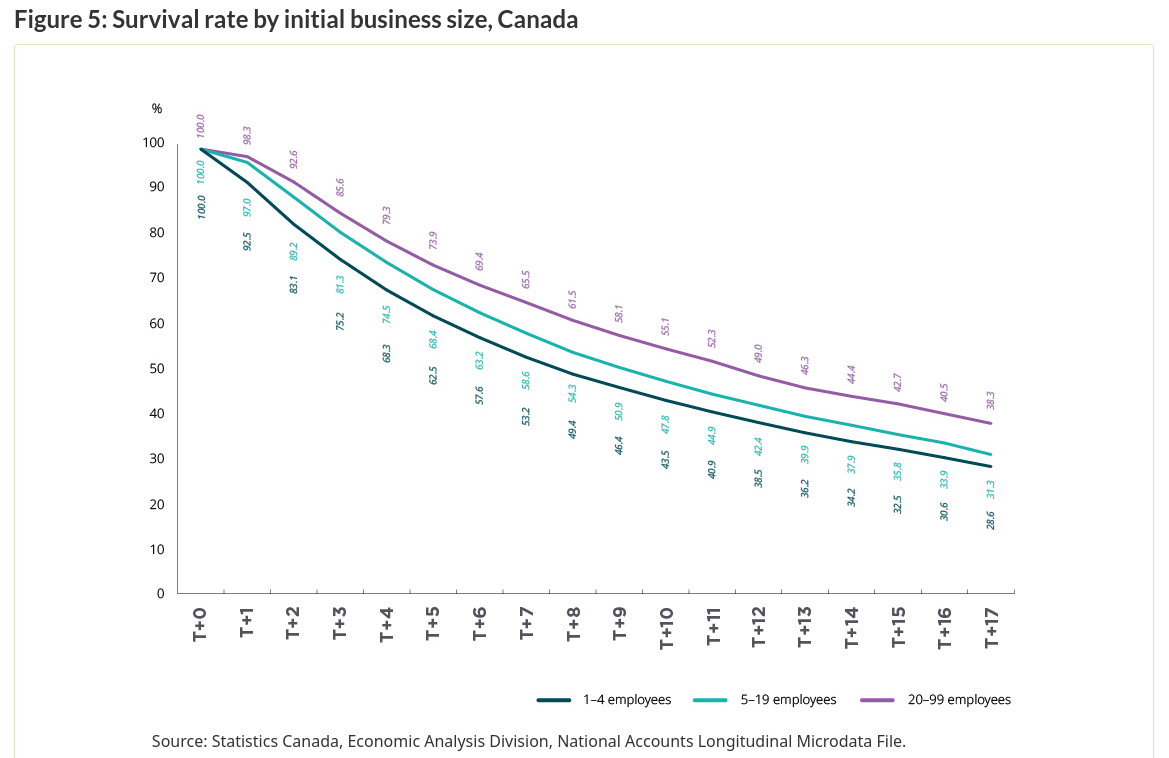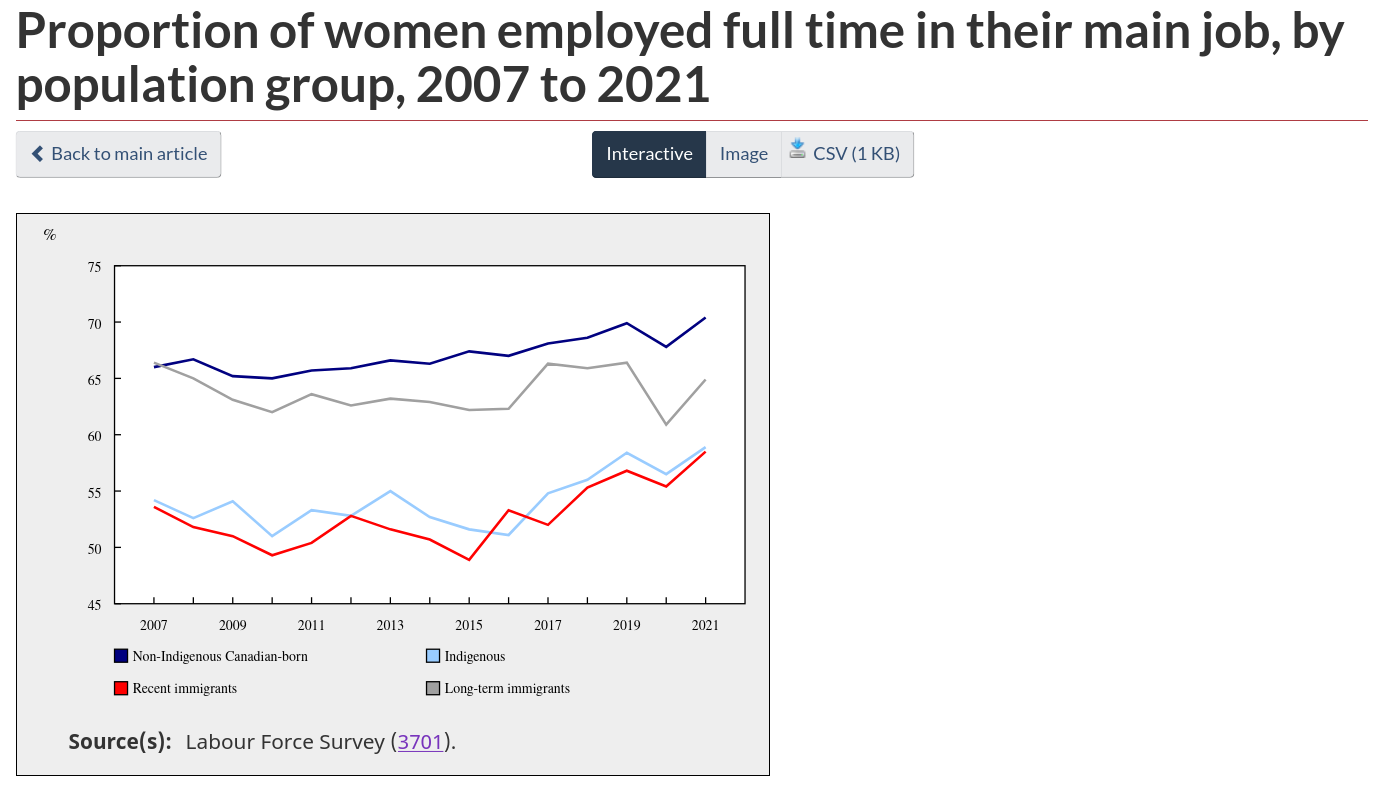September 26, 2022
Major storm in the Atlantic. More to come?
The private electricity and telecom system were down for almost everyone in NS and PEI. Summerside, with their public utility fared much better with most having the lights back on within a day.
There will be continued fallout from this destruction as we find out just how unprepared we are for climate change.
Fascism arrives again in Italy
The Meloni-led coalition, with Matteo Salvini’s nationalist League and former premier Silvio Berlusconi’s Forza Italia — won about 44 per cent of the vote, enough to give it a comfortable parliamentary majority, state broadcaster Rai projected.
The final turnout was just 64 per cent, significantly below the previous record low of 73 per cent in 2018.
Tories are terrible
“The UK is now in the midst of a currency crisis,” said Vasileios Gkionakis, Citigroup’s Emea head of foreign exchange strategy. (FT)
Capital is very unhappy with tax cuts and spending. This is not the 1980s:

The pound sell-off has some talking of an emerging market-style balance-of-payments crisis. The Bank of Singapore wrote of the British “peso” in a report.
Also, Truss is now looking to the Bank of England to save them by making workers even poorer and drive the economy into deeper recession:

“The net result of Friday so far is taxes down for the richest and prices up for working people,” Starmer said Monday at a Bloomberg business event at Labour’s party conference in Liverpool. Shadow Chancellor Rachel Reeves suggested in a Bloomberg television interview that Kwarteng is working at cross-purposes with the BOE.
The Liberal Democrats called on the government to recall Parliament to address the impact of the “shambolic” mini-budget. The Scottish National Party echoed the request.
Wrong on EI?
Some of our readers disagreed with my EI rant. They say small (and even larger) businesses deserve Employment Insurance and should pay into it.
After hours of argument, I still disagree. But, I will reiterate that I do think most "independent contractors" are just misclassified employees and their "employers" should pay into EI for access to some benefits. Better, we should create rules in our society that reduce the incentive to contract-out work.
We can start by looking at the definition of a "small business" vs "independent contractor" or " gig worker".
Small businesses are defined as companies that have 1-99 employees under Statistics Canada.
Those who have 1-4 employees are called micro enterprises.

For the number that exist, small businesses contribute surprising little to the GDP in Canada: 37.8% (this is not counting the destructive force of small business to the economy).
The largest contributors are:
- Agriculture, forestry, fishing and hunting
- Construction
- Health care and social assistance
- Accommodation and food services
- Other services (except public administration)
- Educational services
This is important when you consider that most employees (67%) work for "small businesses"—mostly because people are misclassified. This is no longer the case when you remove the 1-4 employee micro businesses as more than 1/2 of "small businesses" are just people working for themselves.
The fact is, that a large share of the above likely include a huge proportion who are misclassified. People who have been tricked into thinking that they are entrepreneurs, but are simply workers with a single purchaser of their "services".
The data is also heavily bifurcated: micro enterprises on one side and those businesses who move between 50 and 100 employees seasonally and/or flirt with being a medium sized business (100-499 employees).
Interestingly, "high growth" firms which most people think of as being "entrepreneurs" or "tech firms" make up only 5% of employment in "small" enterprises. Meaning, again, most workers in this range are in stable, not-so-"micro" small businesses.
Small enterprises also go out of business more than any other size of business. It is all but guaranteed that a small business will stop operating in a decade, or they become larger employers: i.e., large capital.
This graph is skewed for a variety of reasons, but if you just take the numbers at face value, half of micro enterprises are done year 7.

So, "Small Businesses" are already getting a massive subsidy from employees at larger, more stable firms and government employees paying into EI. The other side are a large number of casual employees tricked into calling themselves "entrepreneurs".
Here is the final kicker: 53% of "small businesses" are in the public sector making up a fifth of the public sector workforce.
There is a lot going on here, but we have to make a better distinction between small capital and those who are misclassified as "micro enterprise" who are really just employees.
And, there is more than one way to solve this problem and create fairness for the misclassified and those who do not have decent employment because they work for privatized public services.
One suggestion is that you are a worker if a plurality of your pay comes from fewer than half a dozen "enterprises" and you do not employ anyone else. In such a situation, you are an employee filling the gap of an inefficient capitalist labour market. Your "employers" should pay into a separate fund (lets call it a Contracting Tax). This tax would be put into the EI fund for benefits for such wayward employees to take parental "leave" and create a dis-incentive for contracting. But, still it cannot be insurance for unemployment.
Expanding EI to include those who are not really employees amounts to including capital in a money redistribution system—undermining the program.
I remain convinced that the solve for misclassified workers is to fix the classification scheme or allow for self-classification if you do not employ (and have no ability to employ) others. This would capture the so-called platform workforce.
This will not be easy. But, no solution to capitalist exploitation is going to be.
In the services-producing sector, the greatest contributions of SMEs to GDP were observed in the educational services (89.6 percent), health care and social assistance (85.7 percent), and other services except public administration (85.0 percent) sectors. SMEs in the information, culture and recreation (24.3 percent), finance, insurance, real estate and leasing (32.0 percent), and transportation and warehousing (41.0 percent) industries had, on average, lower contributions to GDP.
StatCan report on women in full-time employment
Relate this back to the calls by capital to bring in more "immigrant" labour.
Casual work is not evenly distributed.
